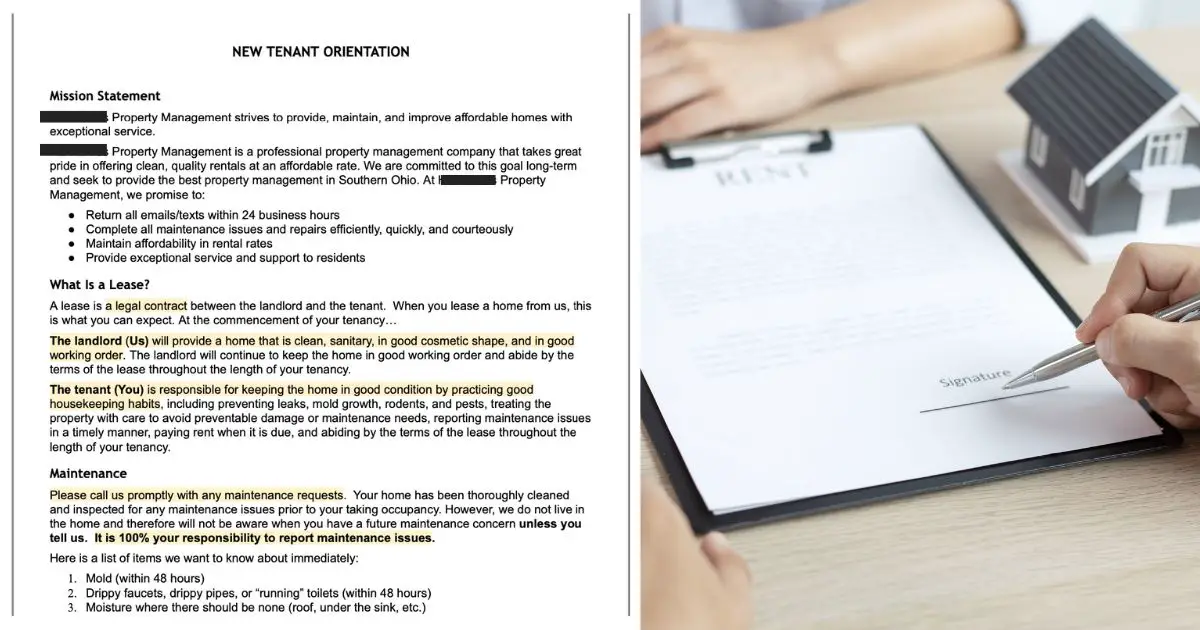Reviewing a potential tenant’s background report is an important part of the tenant screening process.
Sometimes, applicants have some baggage from their past including criminal records or eviction records. When that happens, it can significantly increase the chances of future criminal activity or potential safety hazards to others while they are renting from you.
Rental property applicants should have no violent crimes or felonies within the last 8 years on their record and no evictions on their record. Verifying that each applicant’s background history meets this minimum requirement helps minimize the chance that the tenant will conduct illegal activities or become a safety hazard while living on your property.
With those main points in mind, I’ll cover everything you need to review an applicant’s background history so you can find a tenant who is more likely to follow the rules and provide a safe environment for your other renters below.
Let’s dive in!
Quick Navigation
- Why Landlords Should Review An Applicant’s Background Report
- Who’s Background Report Should Be Reviewed On An Application
- Important Sections Of A Background Report To Review
- How To Review An Applicant’s Background Report
- Be Mindful Of Fair Housing Laws While Reviewing Applicant Background Reports
- What To Do If The Applicant Does Not Pass The Background Check Requirements
- What To Do If The Applicant Does Pass The Background Check Requirements
- Final Thoughts
- Related Content
1. Why Landlords Should Review An Applicant’s Background Report
As a landlord, it is our duty to attempt to provide as safe a living environment as we can for our tenants. One way to do this is to verify a potential tenant’s criminal and eviction history.
By reviewing a tenant’s criminal and eviction history, we can attempt to assess a tenant’s likelihood of following rules and creating a safe environment. If they have no violent crimes/felonies on their record within the last 8 years, this shows us that the tenant has a history of being responsible and following the law. If they have no evictions on their record, this shows us that the tenant has a history of following rules, paying their rent, and leaving rentals without getting the court involved.
Most people with a good criminal and eviction record try to play by the rules, so we can be fairly confident that they won’t want to risk getting potential felonies or evictions on their record.
Of course, a tenant’s life situation can (and likely will) change over time, so verifying they have a clean criminal and eviction record at the time of move-in is not a foolproof way to ensure the rent payments will come on time and the environment will stay safe. But it is one of the biggest areas we want to check to see if they have a history of behaving in society and following the rules of a rental property.
2. Who’s Background Report Should Be Reviewed On An Application
When reviewing applications for your rental property, you want to look at the background history of all applicants over 18 years old. Each applicant should have no violent crimes/felonies within the last 8 years on their record and no evictions ever on their record (discussed below).
Why Review All Applicants’ Background History Instead Of An Individual?
Since everyone in the household over 18 years old will be responsible for the rent and taking care of the property, we want to ensure all of them have a history of following rules. The last thing we want is for only one tenant to have a clean record, then that tenant moves out and the tenant with a track record of felonies and/or evictions is suddenly the only one responsible for taking care of the property and paying the rent.
Sometimes, criminals try to fly under the radar by living with someone else who does not have anything negative on their record. If we don’t screen everyone, and one of these individuals ends up renting from us, then we aren’t providing a safe and secure environment for ourselves, our other tenants, or the neighborhood.
Why Do We Not Allow Any Violent Crimes/Felonies Within The Last 8 Years?
We chose to make the minimum background requirement to be no violent crimes/felonies within the last 8 years because we do not want any potential safety risks or illegal activity occurring at our properties. That being said, we do realize people can change, so we make the cutoff for criminal records to be within the last 8 years. If 8 years have gone by and they have no other felonies on their record, then they likely have changed their life around and are okay to rent again.
Many people have made poor decisions in the past that can haunt them for years to come. We don’t want to hold all previous, bad decisions against the applicants, but we do need to be able to filter through some of them to find the tenants that can and will follow the rules and create a safe environment.
What about if the applicant is registered with the Sex Offender Registry List? Any individual registered as a sex offender cannot live in a home that is within 1,000 feet of any school, preschool, or child daycare center, so we can deny an application if this is the case for our rental property.
However, if this is not the case, then sex offenders also have rights to housing that we cannot discriminate against. For more information on the laws regarding this subject, check out this article.
Why Do We Not Allow Any Evictions On Their Record?
An eviction on a tenant’s background report means they chose not to pay rent or follow their previous lease so the landlord had to get the legal system involved to try to collect that money and remove them from the premises. If we see someone has ever been in a situation where they decided not to pay rent or follow their lease and the landlord had to resort to getting the legal system involved, then we know there is a higher risk that they will choose to not pay their rent and we might have to go through the eviction process one day as well.
We never make an exception on the eviction requirement because the most costly and painful turnover process for a landlord is when an eviction is involved. We just don’t want to deal with it.
No this does not guarantee the applicants will never require us to post an eviction notice or start the eviction process, but it does help us find tenants who likely won’t force us to go down that rabbit hole.
Just like all of the screening requirements, we are simply trying to make the best decision about a person we can from the limited amount of information we can get on them. With past evictions, we choose not to mess around with them.
For more information on what we do when we are reviewing past rental history, check out my other article.
3. Important Sections Of A Background Report To Review
Now that we know whose background history we should review, let’s discuss what sections of their background report we want to make sure we check.
The important sections of a tenant’s background report you want to review include:
- Criminal history (Is the record a felony or misdemeanor? How many years ago did it occur?)
- Eviction history (Do they have an eviction on their record?)
The main areas we check when we decide whether they pass this minimum requirement or not are their criminal record and eviction record.
However, if two applicants are close, then we will include the number of criminal records on their report and the severity of each record in the final decision if we uncover them.
4. How To Review An Applicant’s Background Report
The best way to review an applicant’s background history is to order a background check.
Our favorite tools to use are the free rental manager tools available on Apartments.com and Zillow.com. Both platforms have partnered up with a different credit bureau that provides a (free-to-the-landlord) background and credit report for any person who applies to your rental property listing.
When the tenant pays the application fee on Zillow or Apartments.com, they are actually paying for these two reports to be sent to you.
These reports have been a game-changer for us. In the past, we would speak briefly with the potential tenant asking basic questions about why they were moving before showing them the property. Then if they liked the place, we signed a lease with them. Yep, that was it.
You can guess how many problems we’ve run across over the years by “taking a tenant’s word”. It’s honestly sad because you want to believe everything you hear, but it’s as simple as the old adage goes, “Trust but verify.”
Honestly, we’ve only truly gotten 1 crazy person from that method who went months without paying rent, claimed there was mold throughout the building (no matter how many times we had it checked to ensure it wasn’t), and then finally disappeared on us without another word. It took months for the process to finally be resolved and a ton of lost money and damage to the property.
I’m guessing her background check and credit report would have shown she had a history of not paying her bills since she also left without paying her water or electric bill (they got shut off) plus a history of not staying at each place for very long. Then we could have avoided this whole mess.
Other than that one incident, the main problem we’ve come across by not screening properly in the past is that several of the tenants struggled to pay their rent on time. If we had received a credit and background report on them, we probably would have been able to weed them out and saved ourselves hours chasing rent. You live and you learn!
Now, we make sure we have all potential tenants submit an application where we will be sent their background and credit reports. They can’t falsify these reports because they are sent directly from the credit bureaus.
If we see any felonies within the last 8 years or any evictions on their record, then they are automatically denied based on our minimum screening standards. Otherwise, they pass this minimum requirement and we check to see if they pass our other requirements.
5. Be Mindful Of Fair Housing Laws While Reviewing Applicant Background Reports
As you are reviewing applicants’ background history, be mindful of the Fair Housing Laws.
We don’t want to discriminate based on race, religion, sex, color, national origin, familial status, or disability. Our only goal is to find the best applicant who will pay rent on time and take care of the property.
To comply with Fair Housing Laws, be sure to keep your screening standards as quantifiable as possible. Checking that zero violent crimes/felonies exist within the last 8 years and zero evictions exist on their record is a quantifiable value that they either meet or they do not.
Then, if they do meet that minimum requirement, you can go one step further and compare the number of criminal records to another applicant’s number of criminal records when screening to choose the tenant with the better score because that is still a quantifiable number that has nothing to do with any of the discriminatory characteristics listed above.
For example, Applicant 1 has a driving misdemeanor and no evictions while Applicant 2 has a drug felony and no evictions. Depending on the other screening criteria, Applicant 2 might be the better tenant to choose because they have a history of following the law and not conducting any illegal activity.
The better way to screen applications is on a first-come, first-served basis (if possible). Unless you hold an open house, you’re likely only getting in 1 application at a time. As each application comes in, review it right then and there.
If the application passes all of your minimum screening requirements, then you can schedule a showing with them and move forward with the lease signing process. And if they do not, then you reach out to let them and let them know what screening requirement they fell short on.
We’ve found that this helps us minimize problems because we are reviewing each application individually instead of comparing. They either pass the minimum requirements or they do not.
6. What To Do If The Applicant Does Not Pass The Background Check Requirements
Now that you’ve reviewed the applicant’s background report (which probably took you all of 2 seconds), it’s time to decide if they meet this requirement or not.
If there are any violent crimes/felonies on their record within the last 8 years or any evictions on their record ever, then the application fails (regardless of the other screening requirements) and a Tenant Application Decline/Adverse Action Notice Letter must be sent explaining what they failed on.
We never give a pass on the background check requirement on an application because this can directly affect our safety and the safety of our other tenants. We pride ourselves on providing affordable and safe housing for our tenants.
7. What To Do If The Applicant Does Pass The Background Check Requirements
If the applicant’s background report shows no violent crimes/felonies within the last 8 years and no evictions on their record, then we check to see if they meet the other minimum screening requirements (income and employment history check, credit check, rental history check). If they do, then we schedule a showing with them, otherwise, we send them an Adverse Action Notice Letter explaining what they failed on.
Final Thoughts
That’s it! By now, you have a great idea of how to review an applicant’s background report for a rental property. Now, all that’s left to do is review their employment/income, credit report, and rental history!
We’ve found that by verifying that an applicant’s background report has no violent crimes/felonies within the last 8 years and no evictions, we get tenants that create a safe environment for our other tenants, follow our rules and regulations, and don’t perform any illegal activity at our properties. This ultimately helps us run our rentals smoothly for only 5-10 hours a month.
I hope you find this article useful and that it helps you attract awesome tenants who would love to live in your rental home!
Catch you in my next post!
Related Content
Check out my recommended tools, templates, and resources to free up your time from constantly working on and worrying about your rental properties. My husband and I use these tools to self-manage 18 rental units (and counting) for only 5-10 hours a month.
Keep in mind that most of these items are either free or reasonably priced for the amount of value that they provide. My goal on this page is to recommend tools, templates, and resources that we use daily and wish we had known about at the beginning of our landlord journey. Since implementing them, they’ve saved us countless hours and tons of headaches.
Finding good tenants for a rental property is arguably one of the most essential tasks that a self-managing landlord must accomplish. You’re searching for a high-quality tenant that will pay on time, take care of the property, and be easy to communicate with all while trying to get the most amount of rent and filling the vacant unit as quickly as possible.
That’s no small feat! So, how can you find good tenants for your rental property?


By Christine
Christine is a blogger and real estate investor/property manager who self-manages 18 rental units (and counting) alongside her husband, Adam. Although she successfully automates the management of her rentals and pockets the property management fee now, her path to success was not easy.
Go here to read her story, “From An Overwhelmed First-Time Landlord To A Pro Investor Self-Managing 18 Rentals On Less Than 10 Hours Per Month“.
Recent Posts
How To Reject A Tenant Application (With Examples!)
When you start to accept applications for your rental property, you’ll inevitably get some applications that do not meet your minimum screening standards (even if you list them in the listing, some people just don’t read or don’t care). When this happens, you’ll have to carefully review the application and send back a Tenant Application…
How To Write A New Tenant Welcome Letter For Your Rental Property
When we have found a new tenant that we are ready to sign a lease with, we want to start the new relationship off on the best terms possible. In order to do that, we need to ensure that they are familiar with the most important details of the lease. We do this by providing…
Ultimate Guide To Collecting Rent And Charging Late Fees As A Landlord (Easy System!)
Collecting rent from tenants is one of the most time-consuming (and emotionally charged) parts of being a landlord. Not only will you get every excuse under the sun about why rent will be late this month (again), but you will also miss out on opportunities to collect extra income and increase rent over time if…




